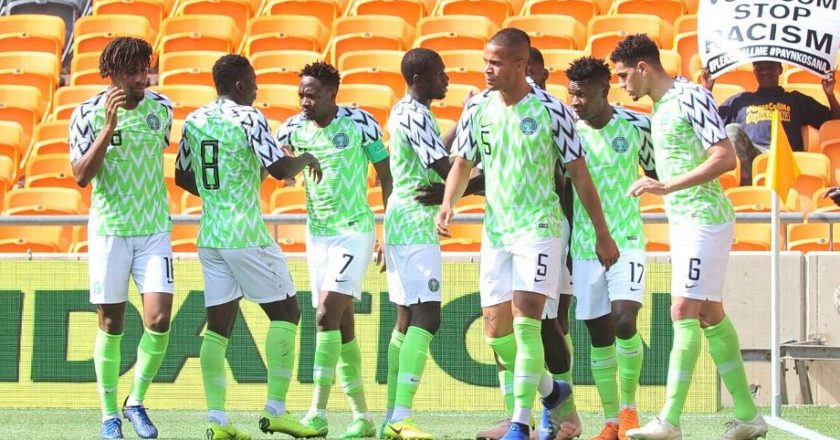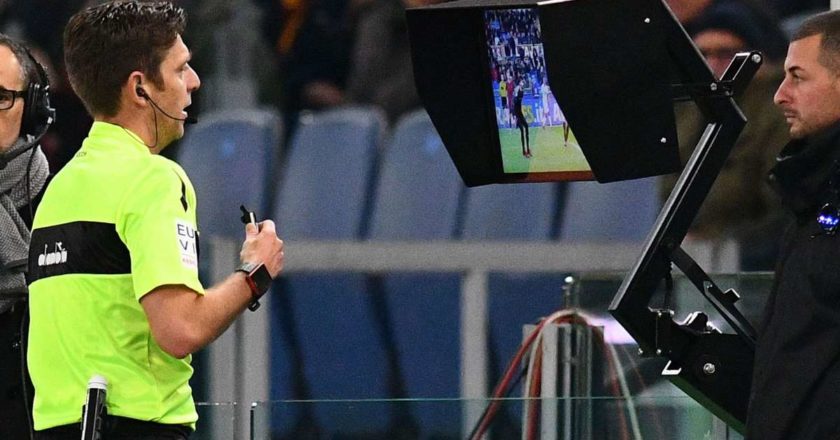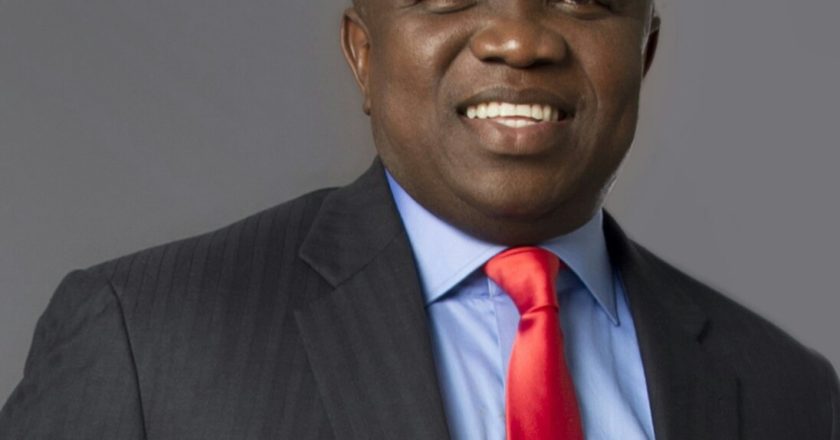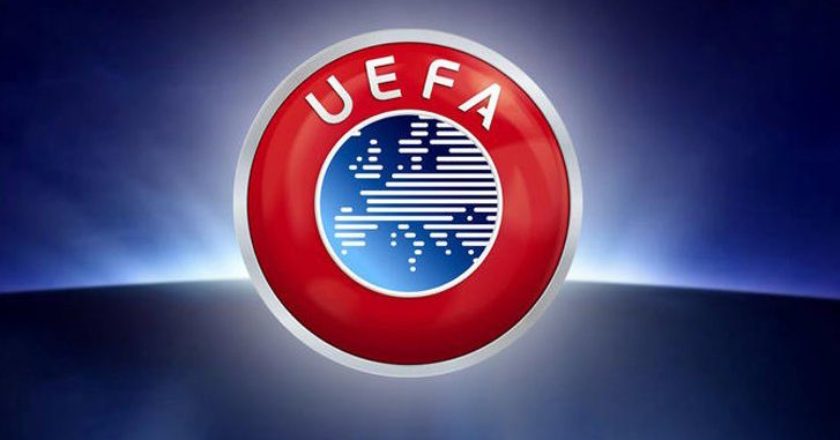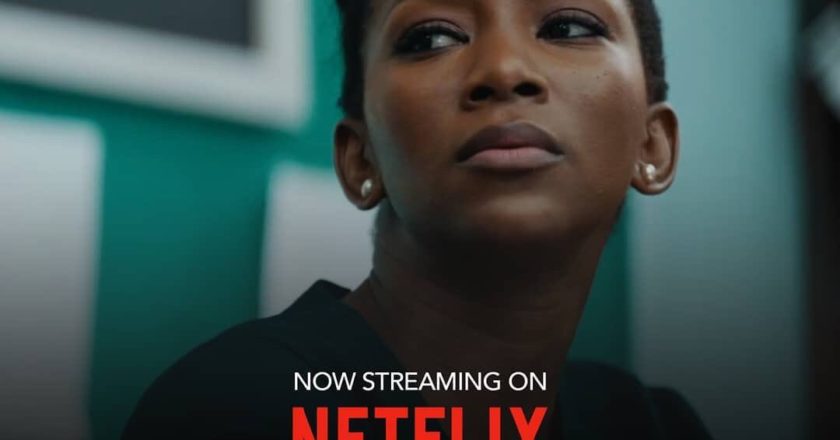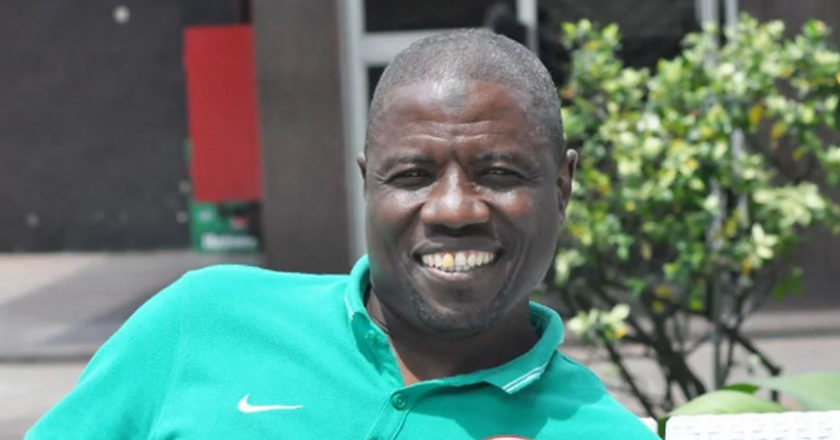Power overwhelmed the Governor, he completely detached himself from the strong political party structure, a party that has been in power in Lagos since 1999 is not the kind of party you would ride on and ignore, you may ignore the man who brought you from obscurity, but to survive, you need to be an exceptional performer and keep your party structure happy. Ambode did not read the hand over notes of Governor Babatunde Fashola, if he had, he would not be facing the political battle of his life, the people stood with Fashola even when the body language of his godfather was hostile, even the mighty Tinubu knew moving against Fashola would have been political suicide.
The Lagos APC power structure is filled with contradictions, sometimes progressive, sometimes self-serving, mostly operating like a bunch of mafias, highly close nit, those who control the party at every level expect absolute loyalty and no questions asked, it reflects most political parties in Nigeria, even newly formed political parties are mirroring the model, they have improved on it, 6 of the newly INEC registered political parties have founders, who are party Chairmen/Women and also sole Presidential Candidate.
Lagos civil service is an extension of the party structure, if you come in as a governor, you are not expected to rock the boat or ‘change the template’ (apologies to Asiwaju Bola Tinubu) it is a structure mostly servicing the few against the majority. Hardly would you find a Lagos State civil servant that is not a card-carrying member of the APC. Particularly the Alausa based civil servants, what happens in Alausa always remain in Alausa.
Lagos APC has political leaders who depend on state resources, they have no other means of livelihood than politics, they know Lagos like the back of their hand and have foot soldiers beholding on them, from NURTW members, to genuine party members who desire progressive change to just anyone that can be a yes man or woman, mostly reliant on on a rental system, they cannot just be cut off and be neglected by any Governor no matter how powerful or resourceful.
Ambode broke the first commandment, “thou shall not be unreachable”.
Yoruba and especially Lagosian’ s do not like Governors or political appointees who are perceived as ‘arrogant’ or cannot be reached, if you like tar the whole of Lagos roads with gold, they want to be able to ‘visit’ and expect TP on the way home, party leaders and members expect you to attend meetings at intervals, they don’t want you forgetting them during ‘Ileya’ ‘Christmas’ or any festive period, the street talk is that Ambode was not only unreachable to party members and leaders, he lived in his own world, his appointees are also detached, party members can’t even remember the name of commissioners in Ambode’s cabinet. Gone are the days when Rauf Aregbesola, Musiliu Obanikoro, Muiz Banire, Tokunbo Afikuyomi and co were Commissioners and you need not see the Governor to have a say in the government. Ambode ran a one man show.
For every progress Ambode made with road construction in inner city Lagos and futuristic projects such as the Lagos-Airport road, Bus Terminals, he undid with unpopular policies that targeted the very poor, it was as if he was in a race to undo some of Tinubu and Fashola’s projects, they say if it isn’t broken, don’t fix it. Ambode was busy fixing projects that didn’t need fixing, from bus stops, to remodelling roads, it was a waste of time and resources. BRT buses were disappearing one after the other due to neglect, even Ambode’s newly constructed roads started developing potholes, the solutions became a problem. He did so well looking into inner city roads and improving on the Lagos Security Architecture, Lagos under him is one of the safest city by Nigerian standards.
Ambode’s greatest sin was taking away the garbage clearing project, thousands of poor people in Lagos, mostly party members employed as street cleaners and operators lost their means of livelihood. Ambode handed the task of cleaning Lagos over to a relatively unknown company called Visionscape Group, they did a terrible job, the only clean effort from Visionscape was to create a clean looking website, the new face of Lagos became the dirty face of Lagos.
Ambode unleashed one punitive tax system after the other on the people of Lagos, his most controversial being the land use tax, when he was advised to review the tax policy he was stubborn, indifferent and ruthless until the protest grew louder, he did not stop at that, he legislated his God fathers alleged tax collection firm company Alpha Betta as the sole collector, when citizens screamed scam, the state legislator claimed that legislating Alpha Betta into a state tax collection system was an “administrative mistake.”
Of all his attempt to fix inner city roads, Ambode waged war on poor people in waterfront areas, the people of Otogbgbame paid dearly for Ambode’s land grab schemes, over 200 structures belonging to poor people were razed down in 2016, the Egun and settler community around Lekki were seen by the government and elitist friends as an eyesore, to make matters worse the government disobeyed court orders, even when they got an injunction from the courts, like his predecessors Ambode mocked the Freedom of Information Act. Lagos is one of the few states where budgets are released without a breakdown.
Ambode is a product of the ‘baba sope’ collegiate contradiction and a victim of same. Hopefully the Yoruba “progressive” will learn from the resistance in Ondo, Ekiti, Kogi and the disaster of losing a Senatorial seat to a dancing clown and almost losing Osun Governorship to him as a warning shot. The warning being democracy is not a gift, it is a right, leaders are servants, entrusted with superintending the fair distribution of the commonwealth, they can’t keep distributing to their lackeys, friends, cousins, wives, concubines, brothers at the expense of qualified members of the public.
The Tinubu Clampdown on Ambode
The assertion that Governor Bola Ahmed Tinubu is behind Ambode’s travails are false, Tinubu would have been swept by the revolt from within his own political base. He was smart enough to be led by the mass, rather than lead them. The revolt also exposes Tinubu’s vulnerability, if he had not moved against Ambode, the mass in his party structure would have moved against him, Tinubu barely yield power and influence, he was forced to stand with the party and base than stand against them, even overtures from Abuja could not have changed that. The crises within the Lagos APC against the Governor had been allowed to fester for too long. The chicken had come home to roost.
Many us have been saying it for years, both privately and in public, the
Asiwaju Tinubu political structure would have to adapt to modern democratic ethos. The collegiate “baba sope” methods is plagued with contradictions and abuse, thus repeated conflicts. It is only a matter of time before it caves to the anger and discontent of followers and the electorate. For all his contributions to Nigeria’s democratic process, the legacy of Governor Tinubu will be better served if he stops getting involved in every selection process, let contest and processes be free and fair, Nigeria’s democratic process can only improve if internal party democratic process is free, transparent and fair, party membership open and attractive to the best who may disagree with the leaders of the party. It will be a shame for all his contributions for Governor Tinubu to leave the public with the image of the Lord of a Mafia group.
WHO ARE THE YORUBA PROGRESSIVES?
Many are sympathetic to the ideological left in Yoruba land, but really if you de robe the masquerade, it is becoming very difficult to spot the differences between the Yoruba PDP or Yoruba APC.
Land and resource ownership and control in Yoruba land, particularly in Lagos is now for the benefit of the few, economy of YORUBA circulates within the same elite. Thus, a Governor Ayo Fayose could challenge the traditional Yoruba left and “win” in Ekiti and it took the traditional left in Yoruba land adapting the play book of Ayo Fayose to “win’ back Ekiti. Usually it takes invoking the spirit of Obafemi Awolowo to win elections in the South West, that is fast changing, the people can’t spot the deference any more, they will rather take their chances with so called ‘akotiletas’ than stay with the so called ‘disciples of Awolowo’
The class structure of modern day YORUBA politicians is modelled after the so-called Hausa-Fulani hegemony style we all have been brought up to detest. Check beneficiaries of government appointments both at the federal, state and local levels in Yorubaland many are family members of Yoruba ruling elite. A very ‘progressive’ Yoruba Senator who mouths JUSTICE was already a pensioner in America, when the opportunity came for the ‘progressive’ to present a name to President Buhari for NAFDAC Chairperson, our Senator did not need to search far and wide Yoruba land for younger qualified Yoruba, he recalled his wife, who by the way was already a pensioner to take the position, the office of the Vice President is littered with sons and daughters of who is who in Yoruba land, Lagos House of Assemble like most Yoruba House of Assembly in Yoruba land is an extension of family meetings, ‘Familitocrcy’ is replacing fairness, New generation Yoruba leaders are winning the battle of who is more nepotistic in the Nigerian federation. The politics of ‘godfatherism’ is replacing the ‘omoluabi’ ethos. ‘Omoluabi’ is just a theme to cunningly use the load of bread to wipe the soup from the plate of the commonwealth.
Yoruba OMOLUABI ethos should not be the subjugation of the will of the people to the few. It is Justice for all, equality for all who live and reside in Yoruba land, irrespective of who they are, where they come from, what language they speak, we are meant to be the beacon of hope, the welcoming people who rejoice at the arrival of new settlers, the one who vacates the most beautiful part of the household to make the guest comfortable, the tolerant one, the one who’s strength is not in the ability to spill blood but the diplomatic prowess of stopping a war, the people who agree, but mostly agree to disagree. The ‘omo Karo o ji ire bi?’.
Fairness in the distribution and allocation of Yoruba resources for all who contribute to Yoruba land should now be the priority of Yoruba leaders, it should cross party and ideological lines. Not all Yoruba progressive or conservatives have done badly, even with their faults but a lot of bad has been done, yes, we can still point to some progress, but that is due to the determination and can-do attitude of Yoruba and all those who have chosen Yoruba Land as home. It is never too late to stop the house from fallen.
——————————————————————————————————————————–
Kayode Ogundamisi is an Inter-Politics, Anti-Corruption Campaigner and presenter of the political TV show #PolitricksWithKO on BEN-TV UK. He blogs at kayodeogundamisi.blogspot.co.uk
